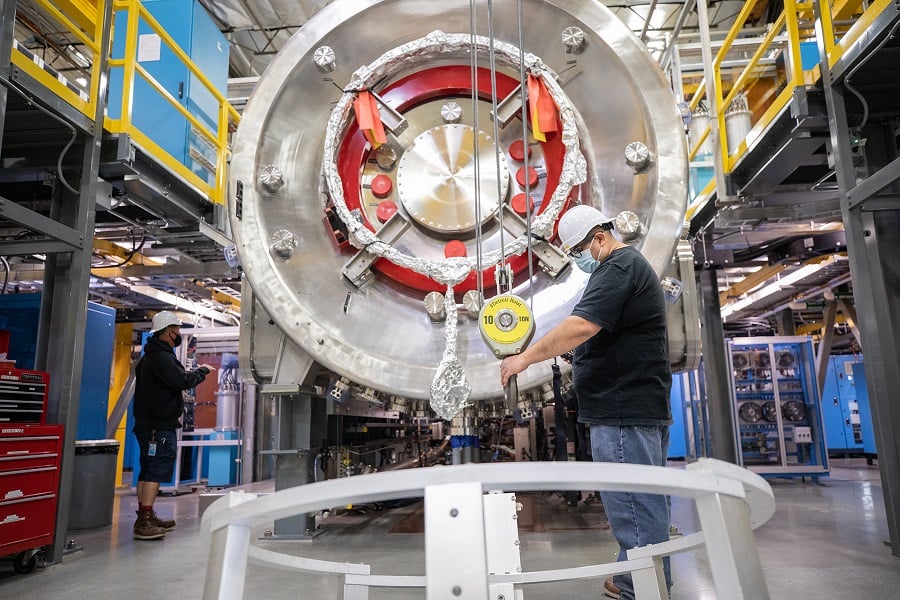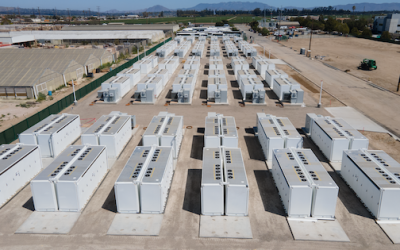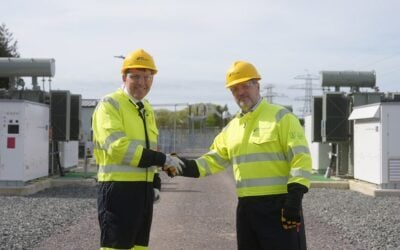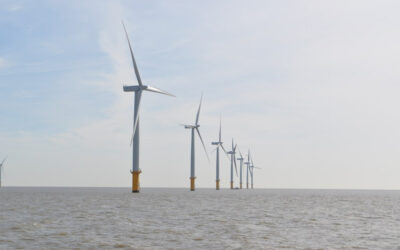
TAE Technologies, a company involved in developing nuclear fusion technologies, has launched a subsidiary focusing on stationary energy storage and electric transport.
The California-based company, founded in 1998 to pursue the promise of near-infinite, waste-free and low-carbon energy from fusing atoms, has spun off its power management division to form TAE Power Solutions.
Enjoy 12 months of exclusive analysis
- Regular insight and analysis of the industry’s biggest developments
- In-depth interviews with the industry’s leading figures
- Annual digital subscription to the PV Tech Power journal
- Discounts on Solar Media’s portfolio of events, in-person and virtual
Or continue reading this article for free
Its proprietary technology platform has been developed as a direct result of the parent company’s work in fusion research, while two UK-based companies, one focused on electric transport and the other on battery energy storage system (BESS) tech, have been acquired.
TAE Power Solutions aims to create technologies to enable faster charging, better performance and higher energy capacity or driving range, as well as longer life for batteries used in both types of application.
The spin-off’s story began when a powerful and extremely fast energy storage solution became required for TAE’s fusion research reactor in Southern California. The reactor needed 750MW of power from a local grid that provided just 2MW.
The company claimed the bespoke solution it developed could accurately, flexibly, and efficiently scale and discharge bi-directionally within sub-millisecond response times.
Spying an opportunity to take it into markets other than fusion, TAE then developed a proprietary AC power module and what it called Converter Battery Module (CBM) technology – which sounds a lot like a power conversion system (PCS) – with fully integrated power electronics and energy storage.
Further to that, TAE Power Solutions has joined APC18 CELERITAS, a consortium with companies including BMW, to develop advanced battery systems, and is in partnership with automotive OEM Marelli to validate the company’s tech and its value proposition.
TAE, which has secured US$1.2 billion financing to date, including a US$250 million financing round closed last year with investors including Google, Chevron and Sumitomo Corporation, said it is important the company is able to leverage its fusion technology R&D to new commercial avenues.
TAE Power Solutions is its second such subsidiary, with TAE having launched a life sciences division targeting the use of a proprietary accelerator technology in new cancer treatments.
Spinning fusion tech into commercial opportunities
Despite the December news that a team at Lawrence Livermore National Laboratory had made a breakthrough in fusion research, garnering widespread praise and news headlines, even that breakthrough is more just a promising indication that nuclear fusion might be a commercial reality in a couple decades at the earliest.
TAE Power Solutions is therefore an attempt to target much nearer-term commercial opportunities in a rapidly growing market. TAE’s US homeland is obviously a hotbed for EV and BESS innovation and deployment, and with the Inflation Reduction Act will likely be for at least the next decade.
The UK meanwhile is another hot BESS market, and soon to be big on EVs, with internal combustion engine (ICE) passenger vehicles set for phase out in the 2030s, not to mention its close proximity to the rest of Europe.
The two UK companies TAE has acquired for its Power Solutions push are stationary energy storage tech specialist Eltrium, which designs and manufactures energy storage systems, power distribution technology and related electronic assemblies, and Sprint Power, which integrates electrical systems and high voltage drivetrains for vehicles. TAE has offices in UK as well as in Switzerland.
The diversification strategy is perhaps a little analogous to a company which has been making headlines of its own within the energy storage space.
Energy Vault is best known by many as a startup developing and commercialising a novel gravity-based energy storage technology. While it has claimed a first large-scale project is already under construction in China, Energy Vault’s gravity storage solution has taken something of a back seat to its more recently established power solutions division.
That division is focused on lithium-ion battery energy storage integration, project design and optimisaton and has netted some significant contracts in the past few months, leading Energy Vault to claim that its 2022 revenues are likely to be far higher than the company’s previously offered guidance.





